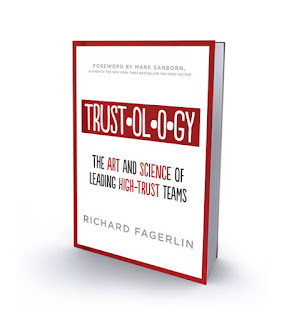 |
| (Photo credit: Game Show Network) |
Some of you may recall a game show called "Friend or Foe."
Contestants partnered up to amass a "trust fund" and either split the
fund or take all the money for themselves.
Much like the game show, we bring together individuals from all walks of life and form wildland firefighting teams. We share knowledge, we build coalitions, and we experience moments of betrayal within our teams. Are your teammates friends or foes?
Trust
"Trust" is mentioned 27 times in Leading in the Wildland Fire Service. We believe:
Leaders start by building a foundation of trust in teams. Trust is the underpinning of all cohesive teams; without it, teams are merely collections of individuals that can never hope to achieve synergy.With lives on the line, building high-trust teams is critical. Knowing that you have people looking out for you and caring for your well-being is vital to effective teams and leadership success. We believe:
Recognizing that communication is the key to building trust, we communicate openly with teams and make sure we convey the essence of our values, mission, and vision. In doing so, we also communicate information about ourselves because our teams must, first and foremost, trust us. (p. 53)
When the mission takes our people into harm’s way, fire leaders redeem their people’s trust by looking out for their well being: doing our best to make decisions that appropriately balance risk and potential gain, being watchful for unfolding conditions that may jeopardize their safety, and being present to share the risks and hardships. The leader being first in and the last out is a classic way of demonstrating the ideal of taking care of our people. (p. 46)Unfortunately, egos and self-centered motivations are a human flaw and can destroy the very teams we have built. Regardless if you are a leader or a follower, lapses of authenticity and breaks in trust are generally easily identified and can have devastating effects. We believe:
Fire leaders strive to create command climates based on trust in which people feel comfortable raising issues that may be problems and engaging in healthy debate over potential courses of action. (p. 19)We believe:
A unified leadership team sends a powerful message: when all leaders follow the same priorities and reinforce leader’s intent through consistent actions and words, our people develop a strong sense of trust for their leaders. It dispels the propensity to second-guess command decisions as subordinates recognize that the leadership team moves as one and is solidly in charge. (p. 16)We believe:
Good command climate is characterized by open communication, mutual trust and respect, freedom to raise issues and engage in debate, clear and attainable goals, and teamwork. (p. 19)Wildland Fire Leadership Challenge - Digging a Little Deeper
- Read Richard Fagerlin's book Trust•ol•ogy: The Art and Science of Leading High-Trust Teams.

- Download a copy of the 2017 Wildland Fire Leadership National Campaign - Leading Authentically Reference Guide and participate in the campaign with your team.

No comments:
Post a Comment